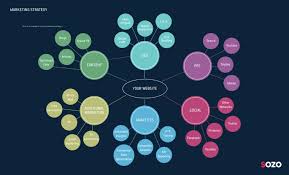The Role of Digital Marketers in Today’s Business Landscape
In today’s fast-paced and highly competitive business landscape, digital marketers play a crucial role in helping companies reach their target audiences, increase brand awareness, and drive sales. Digital marketers are skilled professionals who leverage various online channels and strategies to promote products and services effectively.
One of the key responsibilities of digital marketers is to develop comprehensive digital marketing campaigns that are tailored to meet the specific goals and objectives of their clients. This involves conducting market research, identifying target demographics, and creating engaging content that resonates with the audience.
Furthermore, digital marketers are proficient in using a range of tools and technologies to analyse data, track campaign performance, and make informed decisions to optimise marketing strategies. They are constantly monitoring trends in the digital space and adapting their approaches to stay ahead of the curve.
Social media marketing, search engine optimisation (SEO), email marketing, content marketing, pay-per-click (PPC) advertising, and influencer partnerships are just a few examples of the diverse skill set that digital marketers possess. They understand how each channel works independently and in conjunction with others to create a cohesive marketing strategy that delivers results.
Moreover, digital marketers are creative thinkers who can devise innovative ways to engage with consumers and build lasting relationships with them. They understand the importance of storytelling and branding in creating a memorable experience for customers across various touchpoints.
In conclusion, digital marketers play an indispensable role in helping businesses thrive in the digital age. Their expertise, creativity, analytical skills, and strategic thinking contribute significantly to the success of marketing campaigns and ultimately drive business growth.
Understanding Digital Marketing: Roles, Skills, Success Metrics, Strategy Components, and Business Benefits
- What is the role of a digital marketer?
- What skills are essential for a digital marketer?
- How do digital marketers measure the success of their campaigns?
- What are the key components of a successful digital marketing strategy?
- How can businesses benefit from hiring a digital marketer?
What is the role of a digital marketer?
The role of a digital marketer is multifaceted and essential in today’s digital landscape. Digital marketers are responsible for developing and implementing online marketing strategies to promote products or services, increase brand awareness, drive website traffic, and generate leads or sales. They utilise various digital channels such as social media, search engines, email, content marketing, and online advertising to reach and engage with target audiences effectively. Additionally, digital marketers analyse data and metrics to evaluate campaign performance, identify trends, and make informed decisions to optimise marketing efforts. Their role is dynamic and ever-evolving as they stay abreast of the latest trends and technologies to ensure their strategies remain effective in achieving business objectives.
What skills are essential for a digital marketer?
In the realm of digital marketing, a common query revolves around the essential skills required for a successful digital marketer. A proficient digital marketer must possess a diverse skill set that includes but is not limited to proficiency in data analysis, understanding of SEO and SEM practices, adeptness in social media management, proficiency in content creation and storytelling, familiarity with email marketing strategies, and strong communication skills. Additionally, staying updated with the latest trends in digital marketing, being analytical yet creative in approach, having a strategic mindset, and being adaptable to evolving technologies are crucial attributes for a digital marketer to excel in today’s competitive landscape.
How do digital marketers measure the success of their campaigns?
Digital marketers measure the success of their campaigns through a variety of key performance indicators (KPIs) that align with their specific goals and objectives. These KPIs may include website traffic, conversion rates, click-through rates, engagement metrics, return on investment (ROI), customer acquisition cost, and more. By analysing these metrics using tools such as Google Analytics, social media insights, and email marketing platforms, digital marketers can gain valuable insights into the effectiveness of their campaigns and make data-driven decisions to optimise future strategies. Additionally, A/B testing, heatmaps, and user behaviour analysis help digital marketers understand how audiences interact with their content and identify areas for improvement to enhance campaign performance.
What are the key components of a successful digital marketing strategy?
When considering the key components of a successful digital marketing strategy, several crucial elements come into play. Firstly, a well-defined target audience is essential, as understanding who the marketing efforts are aimed at allows for tailored and effective messaging. Additionally, engaging and relevant content that resonates with the audience is vital to capturing their attention and driving engagement. Utilising various digital channels such as social media, SEO, email marketing, and PPC to reach the target audience is also crucial. Furthermore, data analysis and regular performance tracking are key components that enable marketers to refine their strategies based on real-time insights and metrics. Lastly, a strong focus on continuous adaptation and innovation ensures that the digital marketing strategy remains effective in an ever-evolving landscape.
How can businesses benefit from hiring a digital marketer?
Businesses can benefit significantly from hiring a digital marketer due to the expertise and strategic approach they bring to the table. Digital marketers possess a deep understanding of online channels and tools, allowing them to create targeted campaigns that reach the right audience at the right time. By leveraging their skills in areas such as SEO, social media marketing, content creation, and data analysis, digital marketers can help businesses increase brand visibility, generate leads, drive website traffic, and ultimately boost sales. Additionally, digital marketers stay up-to-date with the latest trends and best practices in the industry, ensuring that businesses stay ahead of their competitors in the ever-evolving digital landscape.

